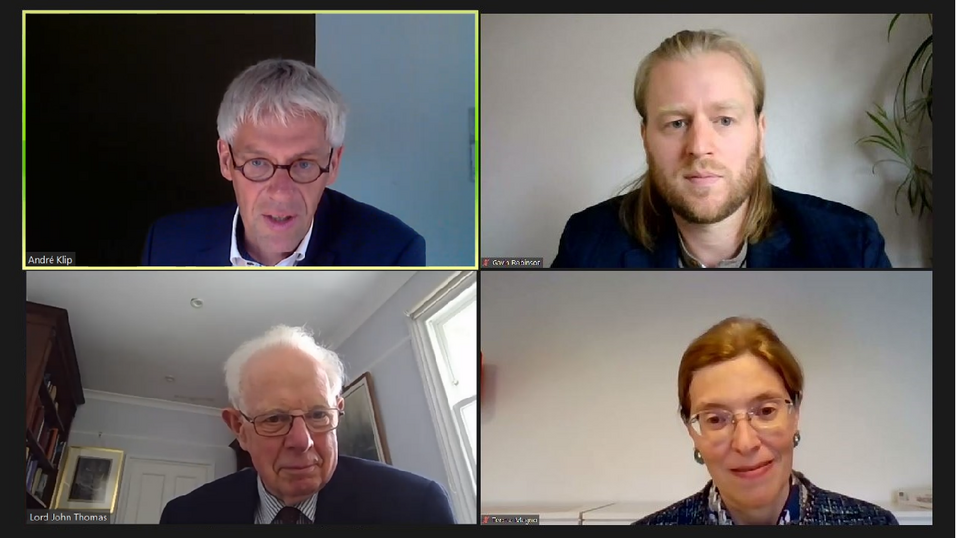The Report on the Prevention and Resolution of Conflicts of Jurisdiction in Criminal Matters in the European Union, approved by ELI bodies in 2017, offered three Legislative Proposals on how to effectively tackle these problems. Published by OUP in 2018 and referred to by several important stakeholders, such as the European Parliamentary Research Service, the Report has been, and still is, stirring discussions.
The Chair of the webinar, Lord John Thomas (ELI First Vice-President), emphasised that with the new types of transnational crimes and different regimes of jurisdiction in various countries, a mechanism for the settlement of conflicts of jurisdiction is of great importance.
André Klip (Professor at Maastricht University; Co-Reporter of the ELI project) began by explaining what jurisdiction is and by illustrating the problems of overlapping jurisdictions. The power and competence of a state to apply its substantive criminal law on the conduct of human beings can create positive and negative conflicts of jurisdiction. There are situations when two states can have jurisdiction, but also there might be a situation where no state has jurisdiction or when a state is inactive in enforcing its jurisdiction. In order to address those situations, the ELI Report proposed three solutions. One of them, the mechanism for the allocation of criminal jurisdiction in the Area of Freedom, Security and Justice (AFSJ), would prevent conflicts of jurisdiction by establishing uniform European rules on the allocation of the exercise of criminal jurisdiction. It refers to the principle of territoriality, but addresses also the challenges resulting from multi-territorial offences.
Gavin Robinson (Postdoctoral researcher and Assistant Professor at the University of Utrecht; Project Team member of the ELI project) continued by explaining two other mechanisms developed by the Project Team, namely the horizontal and vertical ones. While the former puts primary responsibility to resolve conflicts of criminal jurisdiction among Members States themselves, the latter entails a binding decision of a supranational body – Eurojust on the choice of forum, in case such horizontal consultations between Member States fail. From the regulatory point of view, Robinson explained, the proposed legislative instrument for the horizontal model is a directive, while for the vertical one – because of the possibility of a binding decision by Eurojust – a regulation.
Teresa Magno (Assistant to the National Member for Italy, Eurojust) provided an overview of the status quo as to the current legal framework in the field and explained that there is no binding instrument establishing a mechanism to resolve conflicts of jurisdiction in criminal jurisdiction in the EU. She went on explaining the principles upon which jurisdiction is exercised currently and stressed the urgency to address the jurisdiction conflicts, especially in connection to the transnational crimes and cybercrimes. She emphasised that the territoriality principle does not solve the problem of positive jurisdictional conflicts, as it allows more than one state to exercise jurisdiction. She then explained the role of Eurojust is solving conflicts of jurisdiction and accentuated that Member States may refuse, in certain cases, to follow its written opinion on jurisdiction and that Eurojust is competent only in relation to some crimes.
A stimulating discussion with participants followed with regard to the three models elaborated within the framework of the ELI project, consequences of Brexit for the solutions for conflicts of jurisdiction and role of Eurojust and its involvement in solving conflicts of jurisdiction. It was also opined that the biggest problem that causes conflicts of jurisdiction is the lack of reasoning of decisions by competent national authorities.
The webinar recording is available below.
The PowerPoint presentations from the webinar are available below:


